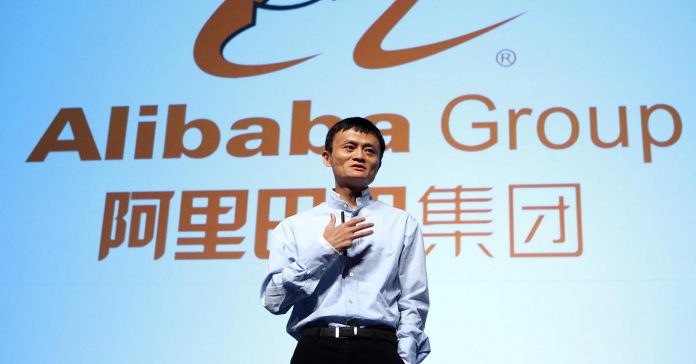HONG KONG: Internet giant Alibaba’s stock dropped by as much as eight percent, leading a tech selloff in Hong Kong on Monday, amid the ongoing investigation by China’s antitrust regulators.
Alibaba Group Holding led a second day of frenetic selling among China’s largest tech firms, driven by fears that antitrust scrutiny will spread beyond Jack Ma’s internet empire and engulf the country’s most powerful corporations.
Shares of Chinese shopping platform Meituan dived 5.3 percent, while multinational technology holding Tencent plunged 4.8 percent. The broader Hang Seng Tech index declined by 4.33 percent.
Alibaba’s stock price extended previous losses, plunging to the lowest level since early July, despite the corporation’s decision to raise a proposed stock buyback program, launched earlier this quarter. On Sunday, the online retailer announced plans to increase repurchasing from $6 billion to $10 billion in company stock and to extend the buyback through 2022.
Last week, the company’s US shares slid 13 per cent shortly after the Chinese authorities announced a probe into the e-commerce giant as part of a broadened anti-monopoly crackdown on tech companies.
According to the State Administration for Market Regulation, the country’s top market watchdog, Alibaba had been subject to formal investigation for its “choosing one of two” policy for allegedly putting pressure on its sellers not to offer their goods on rival services.
Alibaba and its three largest rivals – Tencent Holdings, food delivery giant Meituan and JD.com – have shed nearly $200 billion over two sessions since Thursday.
On Sunday, the central bank ordered Mr Ma’s other online titan – Ant Group – to return to its roots as a payments service and overhaul adjacent businesses from insurance to money management, spurring talk of an eventual breakup.
“The Chinese government is putting more pressure or wants to have more control on the tech firms,” Jackson Wong, asset management director at Amber Hill Capital, said. “There is still very big selling pressure on firms like Alibaba, Tencent or Meituan. These companies have been growing at a pace deemed by Beijing as too fast and have scales that are too big.”
It’s unclear what concessions regulators may try to wring from Alibaba. Under the existing Antitrust Law – now undergoing revisions to include the internet industry for the first time – Beijing can fine violators up to 10 per cent of their revenue. In Alibaba’s case, that could mean a levy of as much as $7.8bn.
Ma, the flamboyant co-founder of Alibaba and Ant, has all but vanished from public view since Ant’s IPO was derailed last month. As of early December, the man most closely identified with the meteoric rise of China’s private sector was advised by the government to stay in the country, a source said.
Investors remain divided over the extent to which Beijing will go after Alibaba and its compatriots as the government prepares to roll out the new anti-monopoly regulations.





good ali baba
god ali baba